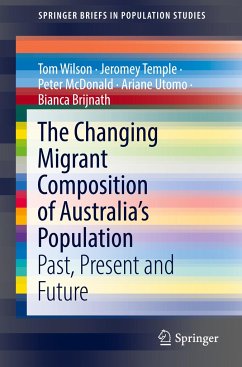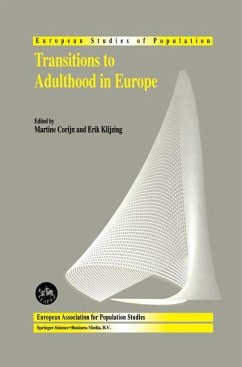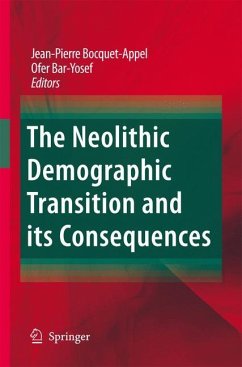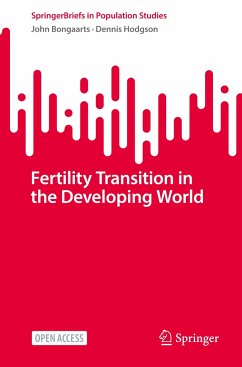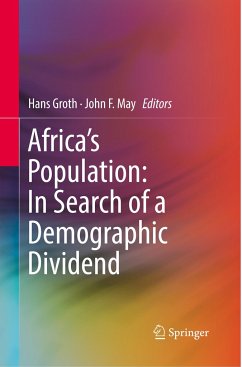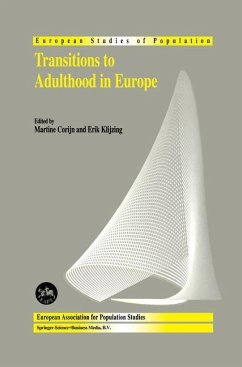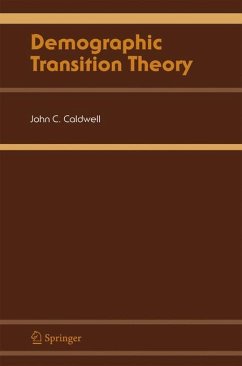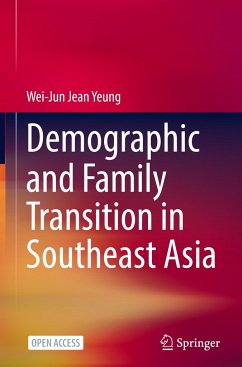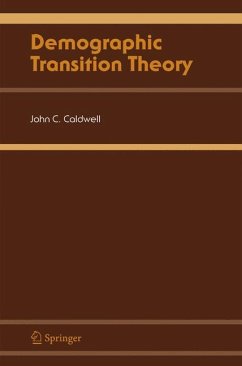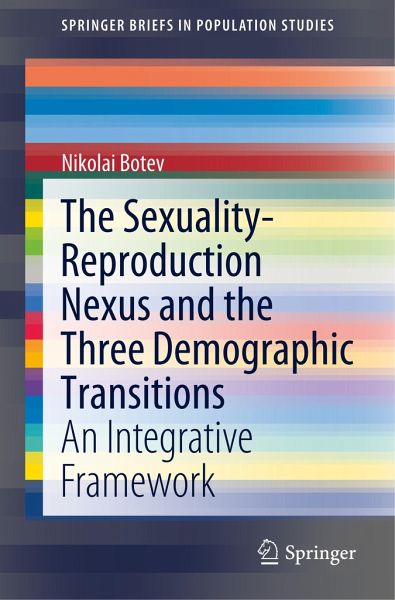
The Sexuality-Reproduction Nexus and the Three Demographic Transitions
An Integrative Framework

PAYBACK Punkte
19 °P sammeln!
This monograph outlines an integrative framework that conceptualizes the role of relations of control in human reproduction and long-term population dynamics. It thereby draws on the demographic transition theory, sexuality studies, Foucault's concept of bio-power and sexuality as key to social control, cognate concepts and theories, and on findings from demography, anthropology, archaeology and other disciplines.The framework is based on the premise that four demographic regimes can be identified over the course of human history. They are defined by the primary locus and modus of control over...
This monograph outlines an integrative framework that conceptualizes the role of relations of control in human reproduction and long-term population dynamics. It thereby draws on the demographic transition theory, sexuality studies, Foucault's concept of bio-power and sexuality as key to social control, cognate concepts and theories, and on findings from demography, anthropology, archaeology and other disciplines.
The framework is based on the premise that four demographic regimes can be identified over the course of human history. They are defined by the primary locus and modus of control over reproduction. The framework questions some of the basic postulates in population studies, including how demographic transitions are interpreted. As such this book contributes to the debate on the longer-term trends in population dynamics and the relations of power and control in human reproduction.
The framework is based on the premise that four demographic regimes can be identified over the course of human history. They are defined by the primary locus and modus of control over reproduction. The framework questions some of the basic postulates in population studies, including how demographic transitions are interpreted. As such this book contributes to the debate on the longer-term trends in population dynamics and the relations of power and control in human reproduction.





